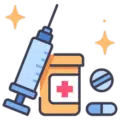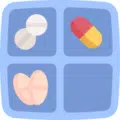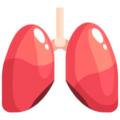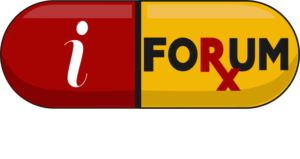Author(s)
Kimberly L. Zitko, PharmD, BCACP, BCGP
Brittany Schmidt, PharmD, BCACP
Reviewed By
Jordan Ballou, PharmD, BCACP
Tamera D. Hughes, PharmD
Stefanie P. Ferreri, PharmD, BCACP
Hoehns JD, Witry M, Al-Khatib A, et al. Community pharmacist and family medicine clinic provision of chronic care management services for Medicare beneficiaries with uncontrolled hypertension. J Am Coll Clin Pharm. 2020; 1– 7. https://doi.org/10.1002/jac5.1224
The Problem
Hypertension is poorly managed in the United States with only 25% of patients achieving optimal blood pressure (BP) control (BP less than 130/80 mmHg). Poor management of hypertension increases a patient’s risk of cardiovascular events and other negative health outcomes.1 To achieve optimal control, patients require close follow-up and BP-lowering medication regimens need to be titrated and periodically adjusted. Current practice guidelines for hypertension recommend monthly follow-up in patients not achieving their BP goals.2 Community pharmacists are in a unique position to manage patients who have poorly controlled hypertension. While community pharmacists are well positioned, significant barriers exist to implementing hypertension management services including lack of reimbursement. Is chronic care management (CCM) a viable payment model to support these services?
What’s Known
- Virani SS, Alonso A, Benjamin EJ, et al; on behalf of the American Heart Association Council on Epidemiology and Prevention Statistics Committee and Stroke Statistics Subcommittee. Heart disease and stroke statistics—2020 update: a report from the American Heart Association. Circulation. 2020; 141: e139–e596. doi: 10.1161/CIR.0000000000000757.
- Whelton PK, Carey RM, Aronow WS, et al. 2017 ACC/AHA/AAPA/ABC/ACPM/AGS/APhA/ASH/ASPC/NMA/PCNA guideline for the prevention, detection, evaluation, and management of high blood pressure in adults: a report of the American College of Cardiology/American Heart Association Task Force on Clinical Practice Guidelines. Hypertension. 2018; 71(6): e13-e115. doi: 10.1161/HYP.0000000000000065.
- Fixen DR, Linnebur SA, Parnes BL, et al. Development and economic evaluation of a pharmacist-provided chronic care management service in an ambulatory care geriatrics clinic. Am J Health Syst Pharm. 2018; 75(22): 1805-11. doi: 10.2146/ajhp170723.
- Department of Health and Human Services. Centers for Medicare & Medicaid Services. Chronic Care Management Services. Available at: https://www.cms.gov/outreach-and-education/medicare-learning-network-mln/mlnproducts/downloads/chroniccaremanagement.pdf. Accessed May 13, 2020.
- Clifton C, Phillips A, Abubakar A. Chronic care management: an emerging opportunity for pharmacists. Consult Pharm. 2018; 33(11): 611-8. doi: 10.4140/TCP.n.2018.611.
- Yuet WC, Gardea J, Ebert D, et al. Pharmacist-led chronic care management services. Ann Fam Med. 2019; 17(5): 465. doi: 10.1370/afm.2440.
- Garwood CL, Korkis B, Mohammad I, et al. Implementation of chronic care management services in primary care practice. Am J Health Syst Pharm. 2016; 73(23): 1924-32. doi: 102146/ajhp150985.
- Hoehns JD, Witry M, Al-Khatib A, et al. Community pharmacist and family medicine clinic provision of chronic care management services for Medicare beneficiaries with uncontrolled hypertension. J Am Coll Clin Pharm. 2020; 1– 7. doi: 10.1002/jac5.1224.
- Arnett DK, Blumenthal RS, Albert MA, et al. 2019 ACC/AHA guideline on the primary prevention of cardiovascular disease: a report of the American College of Cardiology/American Heart Association Task Force on Clinical Practice Guidelines. Circulation. 2019; 140 (11): e596-e646. doi: 10.1161/CIR.0000000000000678.
- National Community Pharmacists Association. Available at: https://ncpa.org/prescriber-collaboration. Accessed Jun 18, 2020.





 iForumRx.org is a web-based community of practice designed to inform ambulatory care pharmacy specialists, pharmacy residents, and student pharmacists about high-quality, practice-changing evidence.
iForumRx.org is a web-based community of practice designed to inform ambulatory care pharmacy specialists, pharmacy residents, and student pharmacists about high-quality, practice-changing evidence.